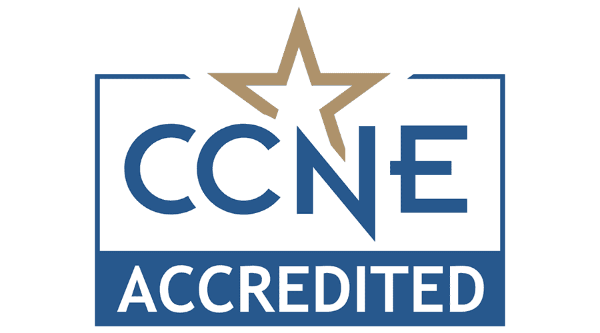
Welcome Students!
Congratulations on your decision and dedication to further your academic career!
The information contained in the RN to BSN/CEP Student Handbook is designed to assist students in successfully navigating the program. The Nursing Program RN to BSN Student Handbook and the Academic Catalog to which it refers are not contracts. The content of this document, policies, and program guidelines, which are described in each, may be changed or eliminated at any time. This handbook makes references to state licensing in the discipline of nursing, and the state Board of Nursing’s requirements are subject to change. The nursing program expects nursing students to comply with any and all laws that qualify them for a valid and unencumbered RN license in the state of Texas or other designated state as approved by the program. UHV RN to BSN Concurrent Enrollment Program expects nursing students to comply with admission to a regionally accredited Associate Degree of Nursing Program or Diploma Nursing program.
Academic Calendar
The Academic Calendar is where the student will find important dates such as advance and/or late registration, fee payment deadlines, the first and last day of classes, drop/add period, and holidays. The RN to BSN Online Nursing Program runs in 8-week blocks. Important deadlines for graduation applications, course withdrawal, and waivers are found in the University Academic Calendar.

Structure and Governance
UHV's Mission
The University of Houston-Victoria (UHV), a dynamic destination institution serving Texas and the world, is dedicated to providing every student educational and leadership opportunities to become a successful professional and an engaged global citizen. Innovative educational activities challenge students to make meaningful connections between their learning and their lives in a complex world. UHV promotes economic development and advances quality of life through teaching, research, and service excellence.
College of Education and Health Professions Mission Statement
COEHP Mission Statement
The mission of the College of Education & Health Professions (CoEHP) faculty and staff is to provide an excellent educational experience to learners enrolled in programs offered by the CoEHP at the University of Houston-Victoria. The faculty, through their teaching, research, and service, are committed to preparing highly qualified professionals for their chosen careers in the teaching, coaching, counseling, administration, and health and wellness fields. The College of Education & Health Professions strive to serve as a model organization, responsive to the challenges of a modern society. [Amended by SoEHPHD 1/13/17; 05/23/2022]
The mission of the Nursing Program is to provide nurses innovative and responsive programs to advance their career as valued graduates and nurse leaders. The Nursing Program is committed to serving the educational needs and enhancing the quality of life while enriching the economic, cultural life, and health of the communities served.
Vision
It is the vision of the RN to BSN Nursing Program to be recognized as a model of excellence and become one of the leading RN to BSN online Baccalaureate nursing programs in the region. Additionally, through leadership and scholarship by faculty and graduates; the RN to BSN Nursing Program endeavors to contribute to the body of nursing knowledge.
Philosophy
The Nursing Program faculty believe nursing is a balance of both art and science. The art of nursing includes the concepts of caring and collaboration that foster respectful relationships and individual dignity and value. The science of nursing is supported through inquiry, research, and other scholarly activities promoting evidence-based practice. Further, the nursing faculty view human beings as unique, holistic, and multidimensional; deserving of value and dignity. As such, patients have the right to autonomy as well as information to make informed decisions. The philosophy of the Nursing Program is guided by the five principles as outlined below.
Health is a dynamic state of interaction uniquely experienced by each individual and exists on a continuum.
Nursing as a practice discipline is both an art and a science. The biological, cultural, physiological, physical, personal, political, and spiritual contexts of the environment are integral to the human experience.
Nursing faculty understand caring to include compassion, awareness of self and others as biopsychosocial, spiritual beings, and relationship-centered care. As such, faculty seek to provide a safe, dynamic, working, and learning environment, to promote the development of individuals, families, and community members’ health.

Philosophy
Effective communication among disciplines, clients/patients, and families is central to the guiding principle of collaboration. The Nursing Program seeks to promote a supportive and cooperative culture to advance and achieve shared expectations and goals. Faculty believe collaboration should include a culture of support, authenticity, advocacy, cooperation, establishing and maintaining partnerships and co-participation. The Nursing Program encourages active engagement through collaboration with all members of the healthcare team and with recipients of health.
The faculty value innovation through inquisitiveness, creativity, adaptation, resilience, evidence-based approaches, and informatics technology. The faculty further believes the professional nurse is a partner and advocate for the health consumer in an increasingly diverse population. Professional nursing provides culturally congruent care to individuals, families, and groups (populations) within their communities. Care of the physical, psychosocial, and spiritual needs is essential to disease prevention, health promotion, and maintenance of health.
Program Goals
- Provide student-centered innovative education programs.
- Develop and maintain collaborative partnerships.
- Advance the nursing profession through scholarship and professional involvement.
- Serve as a foundation for graduate study.
Expected Student Outcomes (ESO) will:
- Synthesize knowledge from the biological, social, and behavioral sciences, the humanities, and nursing to provide appropriate, culturally sensitive care to individuals, families, and communities.
- Demonstrate inquiry and analysis in applying patient care technologies and information systems to support safe nursing practice and population risk reduction.
- Lead safety and quality improvement activities as part of the interprofessional team and as an advocate and manager of nursing care.
- Manage care transitions and promote population risk reduction with diverse communities in collaboration with members of the interprofessional health care team.
- Participate in monitoring institutional, professional, and public policy to maintain adherence to standards of practice within legal, ethical, and regulatory frameworks of the professional nurse.
- Demonstrate leadership skills related to clinical and professional issues, financial, and human resource in providing and evaluating care.
- Demonstrate leadership and advocacy that reflects the values and ethics of the nursing profession.

Upper Division Nursing Curriculum
Plan of Study
The plan of study to complete the baccalaureate degree in the RN to BSN program consists of the following 30 hours of upper division nursing coursework. Sequencing coursework depends on the specific cohort the student is admitted to and whether the student is full-time or part- time. Students must complete all nursing pre-requisites before enrolling in NURS 4314. Students planning to matriculate part-time and/or have non-nursing coursework to complete, need to understand both University and Departmental degree requirements.
Accreditation
The baccalaureate degree in nursing at University of Houston-Victoria is accredited by the Commission on Collegiate Nursing Education, 655 K Street, NW, Suite 750, Washington, DC 20001, 202-887-6791.

Plan of Study
- NURS 3310 Transition to the BSN Role
- NURS 3315 Foundations of Comprehensive Pathophysiology in Nursing
- NURS 3411 Comprehensive Health Assessment
- NURS 4110 Capstone Project
- NURS 4310 Global Health System
- NURS 4311 Healthcare Organization and Informatics
- NURS 4313 Population Focused Community Health
- NURS 4314 Introduction to Evidence-Based Practice
- NURS 4322 Ethics in Healthcare
- NURS 4410 Leadership Roles

Course Descriptions
Bachelor of Science in Nursing Course Descriptions – RN to BSN/CEP
NURS 3310: Transition to the BSN Role
Cr.3. (3-3-0). Prerequisite(s): Admission to UHV nursing program; Active RN licensure. This course focuses on the baccalaureate-prepared nursing role and explores the standards that define professionalism.
NURS 3315: Foundations of Comprehensive Pathophysiology in Nursing
Cr.3. (3-3-0). Prerequisite(s): Admission to UHV nursing program.
This course examines basic pathological processes that underlie diseases commonly found in clinical practice. Modifiable factors that offer opportunities for nursing intervention are identified.
NURS 3411: Comprehensive Health Assessment
Cr.4. (4-3-1). Prerequisite(s): Admission to UHV nursing program; Active RN licensure.
This course provides in-depth coverage of a comprehensive health assessment and introduces health promotion and how this concept is applied within nursing practice.

Courses
NURS 4110: Capstone Project
Cr. 1. (1-0-1). Prerequisite(s): NURS 4313; Admission to UHV nursing program; Active RN licensure.
This capstone course provides students with an experiential learning practicum experience to integrate clinical knowledge with concepts/theories into professional nursing practice.
NURS 4310: Global Health Nursing
Cr.3. (3-3-0). Prerequisite(s): Admission to UHV nursing program.
This course explores global health to include health promotion, population health, primary health care, and health policy from a nursing perspective throughout various geographic regions. Formerly Global Health Systems.
NURS 4311: Healthcare Organizations and Informatics
Cr. 3. (3-3-0). Prerequisite(s): Admission to UHV nursing program.
This course explores U.S. health care delivery organizations and payment systems. The role of information systems in the continuity of care is articulated.
NURS 4313: Population Focused Community Health
Cr.3. (3-3-0). Prerequisite(s): Admission to UHV nursing program.
This course introduces the concept of the population focused health, health policy, and the roles of the nurse in community services.
NURS 4314: Introduction to Evidence-Based Practice
Cr. 3. (3-3-0). Prerequisite(s): Admission to UHV nursing program; ENGL 1301, 1302, BIOL 2401, 2402, 2420; PYSC 2301, 2314; CHEM or Physical Science; Math 1342 or equivalent.
This course provides a foundation for the use of research in practice through a synthesis of introductory research knowledge with emphasis on writing, and scholarly exchange.
NURS 4322: Ethics in Healthcare
Cr. 3. (3-3-0). Prerequisite (s): Admission to UHV nursing program.
This course builds on the ethical and legal foundations for professional nursing practice and health care services.

NURS 4410: Leadership Roles
Cr. 4. (4-3-1). Prerequisite(s)/Co-Requisite(s): Admission to UHV nursing program; Active RN licensure.
This course emphasizes leadership and management theories and includes a practice learning experience focused on nursing management issues. [Amended by NPFC 5/2019; 04/17/2024]
University Core, General Studies and Nursing Common Prerequisite Requirements
Students must satisfy all University requirements for a bachelor’s degree as found in the section title University Degree Requirements or have a Texas Public institution transcript marked core complete in addition to the program requirements below:
Transfer Credits
General Education transfer credits are evaluated and approved by the University’s Office of Admissions.
Lower Division
Students must satisfy all University requirements for a bachelor’s degree as found in the graduation section of this catalog under Deadlines and Procedures. Refer to the current University online catalog for University Degree Requirements - Common Core.
- RN to BSN: Must have graduated from a regionally accredited Associate Degree of Nursing Program or Diploma Nursing Program and hold a valid unencumbered Texas, or other approved state, RN license in order to be eligible for
- UHV RN to BSN Concurrent Enrollment Program: Current admission in good academic standing to an approved, partnering, regionally accredited Associate Degree of Nursing Program or Diploma Nursing Program
Also, students must satisfy the RN to BSN/CEP Nursing Program requirements lower division courses listed below: Courses must be completed with a “C” or higher before taking NURS 4314
- 3 semester hours of Statistics (may take psychology statistics or math statistics.)
- 8 semester hours of Human Anatomy and Physiology.
- 4 semester hours of Microbiology
- 3 semester hours of Chemistry or Physical Science
- 6 semester hours of Psychology (PSYC 2301 Introduction to Psychology, and PSYC 2314 Human Growth and Development).
Note: Science courses total GPA must be 2.5, no D, or F - RN to BSN students may be given up to 36 semester hours of advanced placement credit for successful completion of associate degree courses (ADN) diploma program and subsequent valid unencumbered RN license.

Graduation Application
Students must apply online for graduation at the beginning of their final semester of coursework. To be considered as a candidate for a degree, you must apply for graduation through the Student Self-Service system. You can apply either during the term before or during the semester in which you plan to graduate. However, participation in the commencement ceremony is limited to the term in which degree requirements will be completed.
Commencement
Commencement ceremonies in the Spring and Fall are held in Victoria. UHV does not hold a summer commencement. Summer term graduates participate during the fall graduation ceremony. UHV does not hold a summer commencement.
Bachelor of Science in Nursing (RN to BSN) students who plan to graduate in the summer should apply for summer graduation. However, prospective summer graduates have the option to participate in the following fall ceremony. Students should refer to Graduation Deadlines for additional and up to date information on graduation.
Graduation Requirements
In addition to general University requirements, students seeking the BSN degree must meet the following:
Completion of 120 credits, including:
- 30 final semester hours residency requirement; 30 junior/senior level nursing credits.
- A grade of “C” or better in each nursing course and in the common nursing prerequisites.
- Adherence to the standards of acceptable conduct as outlined in the American Nurses Association Code of Ethics, the Texas Nurse Practice Act, as well as in the University of Houston-Victoria Student Handbook, the Undergraduate Catalog, and the Nursing Program Student Handbook.
Disability Services
These core performances are based on guidelines proposed by the Southern Regional Education Board (SREB) and National Council of State Boards of Nursing. The Nursing Program and UHV comply with Americans with Disabilities Act of 1990, the ADA Amendments Act of 2008, and Section 504 of the Rehabilitation Act of 1973. Therefore, the University will endeavor to make reasonable accommodations for participants with disabilities who are otherwise qualified.
Note. Adapted from the Core Performance Standards for Admission and Progression of Southern Council of Collegiate Education for Nursing Prerequisites for Admission by Southern Regional Education Board (SREB) Council on Collegiate Education for Nursing. Retrieved on June 28, 2016. Adapted with permission.
UHV RN to BSN Five Core Performance Standards for Admission and Progression
-
Issue – Critical Thinking
Standard – Critical thinking ability sufficient for clinical judgment, sufficient powers of intellect to acquire, assimilate, apply, and evaluate information, and solve problems. Examples of Necessary Activities (not inclusive) – Identify cause-effect relationships in clinical situations; develop and implement nursing care plans according to the nursing process; respond without delay to emergencies. The applicant will provide a Self-Evaluation regarding any limitations and explain those limitations.
-
Communication
Standard – Communication abilities sufficient for interaction with others in verbal and written form. Utilizes effective communication skills to interact with patient/client, peers, and other health care personnel of various ages, cultural, economic, and intellectual backgrounds in a variety of settings. Examples of Necessary Activities (not inclusive) – Read, write, and speak English effectively to be understood. Explain treatment and procedures; provide health teaching to individual clients and groups of clients based on assessed needs, available resources, age, lifestyle and cultural considerations; documents and interprets nursing action and patient/client responses. Communicate information accurately and effectively with other schools, colleges, clients, and client families. Evaluate written orders, care plans, and treatment requests. The applicant will provide a Self-Evaluation regarding any limitations and explain those limitations.
-
Mobility
Standard: Gross and fine motor abilities sufficient to provide safe and effective nursing care. Physical abilities sufficient to move from room to room, lift and position, maneuver in small places, and physical health and stamina needed to carry out nursing procedures. Ability to transport self to and from practice learning experiences (clinical). Examples of Necessary Activities (not inclusive): Calibrate and use equipment (i.e., syringes, vials, ampules, donning of gloves, etc.). Able to grasp small objects (i.e., manipulate a syringe, eye dropper, etc.). Perform electronic keyboarding documentation. Move around in patients’/client’s rooms, workspaces, treatment areas, and administer cardiopulmonary procedures. Lift, move, position, and transport patients without causing harm, undue pain, and discomfort to the patient or oneself. Transport mobile equipment in a timely and cautious manner. Self-Evaluation: Applicant will provide a Self-Evaluation regarding any limitations and explain those limitations.
-
Sensory (Auditory, Visual/Tactile)
Standard: Sufficient use of the senses of vision, hearing, touch and smell to observe, assess, and evaluate effectively (both close and at a distance) in the classroom/online, laboratory and practice learning (clinical) settings. Examples of Necessary Activities (not inclusive): Hear monitor alarms, emergency signals, auscultation sounds, and cries for help. Observe patient/client responses. Perform tactile/palpation functions of a physical exam or those functions related to therapeutic intervention, e.g., insertion of catheters and IVs for therapy. Self-Evaluation: Applicant will provide a Self-Evaluation regarding any limitations and explain those limitations.
-
Behavioral
Standard: Sufficient motivation, responsibility, and flexibility to function in new, ever- changing, and stressful environments. Adapts appropriately to ever-changing needs of clients and client families. Examples of Necessary Activities (not inclusive): Adapts to assignment change of patient, clinical, or laboratory area in a manner that allows the student to meet objectives while providing safe, adequate patient care. Accountable for clinical preparation and independent study. Performs nursing functions in a safe, responsible manner. Ability to recognize the need for further research and respond accordingly based on changes in patient/client status since the assignment was made. Self-Evaluation: Applicant will provide a Self-Evaluation regarding any limitations and explain those limitations.
The performance standards are used to assist students in determining whether accommodations or modifications are necessary and provide an objective measure upon which informed decisions could be based on whether students can meet requirements.
Minimum Criteria for Consideration for Admission to the RN to BSN Program
Evidence of a valid, unencumbered Texas or designated State Registered Nurse license and graduated from a regionally accredited Associate Degree of Nursing Program or Diploma Nursing Program. Relocating to another state may invalidate admission, based on new state residency BON rules; students would be required to pay out of state tuition, may lose scholarships that are location/residence specific; and may need to attend PLE in the Victoria, TX area if not available in their new
Applicants must have a minimum Science GPA of a 2.5
Overall GPA of 2.5, no grade of a “D or F,” unless repeated and the student has earned “C” or higher
No more than two (2) course repeats
UHV RN to BSN Concurrent Enrollment Program: Must be currently enrolled and in good academic standing to a UHV approved, partnering, regionally accredited Associate Degree of Nursing Program or Diploma Nursing Program
Academic Advisement
All students must contact the Nursing Advisor before registering for their first course to ensure they receive, sign, and understand their individual plan of study. Students must complete all nursing core pre-requisite courses before enrolling in NURS 4314.
A student may contact the nursing advisor at any time regarding questions about the curriculum requirements, their plan of study, or other questions. It is ultimately the responsibility of the student to be sure the requirements for the degree are met.
[Amended by NPFC 05/2019; 04/17/2024]
Progression Policy
Grades in all nursing courses are calculated per the course syllabus and are reported as a letter grade. Students are required to earn a grade of "C" or higher in all nursing courses. The minimum numeric score required to earn a grade of "C" in any nursing course is a 75% (no rounding). All nursing courses required for the program will be evaluated based on satisfactory completion of class, lab, and PLE competencies. In a course, which includes both theory and practice learning experience (PLE) components, the student must pass both components separately to pass the course.
PLE performance is evaluated per the course syllabus and posted rubric. Earning a cumulative grade below 75% in a PLE constitutes a course failure. Students must earn both a 75% or higher in the PLE component and the didactic portion of the course to pass the course. Scoring an unsatisfactory rating on the PLE component of the course results in a grade of "F" for the course and PLE. A grade of “pass” in the PLE component of the course is required to successfully complete, or pass, the co-requisite theory portion of the course.
RN to BSN students must maintain a valid, unencumbered RN license in Texas (or an approved state) while enrolled in the UHV nursing program. Students must report any changes in status and location in writing to the program director. Relocating to another state may invalidate admission, based on new state residency BON rules; students would be required to pay out of state tuition, may lose scholarships that are location/residence specific and may need to attend PLE in the Victoria area if not available in their new location.
CEP students must maintain good academic standing with the partner institution while in the CEP. Students who are unsuccessful in the ADN coursework, will not be able to progress past the point of course sequencing for the BSN cohort. However, the student will be eligible to join the UHV RN-BSN traditional program once they have graduated from your ADN program and have already received earned UHV credits. Additionally, students who receive an approved leave at VC; will require an approved leave at UHV within the standard institution time frame.
[Amended by NPFC 04/17/2024]
Academic Probation
Students are placed on academic probation in the Nursing Program if they receive a grade of "D" or "F" in any nursing course. A letter stating their academic probation status will be sent to the student. The student will confer with the nursing advisor to determine a revised plan of study. If the student does not confer with the nursing advisor, it is assumed the student does not wish to continue in the program. If the student is out for one year, then the student must reapply to the nursing program and re-admission will be determined on a case-by-case basis. Throughout the program, students are permitted only one “D” or “F” in any nursing course.
The course must be repeated with the student earning a “C” or higher.
RN to BSN/CEP
Students who fail two or more RN to BSN courses or are out for 12 months must submit a letter to the UHV nursing program requesting readmission. The letter will include a detailed plan for success. Re-admission is not guaranteed. The decision of the director and faculty is confidential and final. Students who withdraw and/or drop from a nursing course with a co-requisite requirement must withdraw and/or drop from the other co-requisite course as well. For progression purposes, withdrawal and/or dropping from one course and its co-requisite will be considered as one withdrawal within the Nursing Program.
Suspension from the program due to academic reasons can occur under the following circumstances:
- A course grade of less than "C" in the same nursing course
- A course grade less than a "C" in any two nursing
- Non enrollment for 1 year
Students must complete the program within five years.
[Amended by NPFC 05/2019; 04/15/2020; 07/08/2021; 04/17/2024]
Students who are in the process of appealing a course grade through the UHV Academic Appeals Committee may not enroll in any subsequent nursing courses for which the course under appeal is a prerequisite. If a student registers before receiving an appeal decision, they will be administratively withdrawn from those courses.
Academic Honesty Policy
The UHV Student Honor Code “As a UHV Jaguar, I pledge to be honest, respectful, and responsible, always remembering to respect my university well.”
Since the University is an academic community, every member of the community, including students, are expected to contribute to an atmosphere of high ethical standards in every way possible, especially by observing all accepted principles of academic honesty. Students are responsible for knowing standards of academic conduct, whether stated or routinely assumed.
The Nursing Program Honor Code incorporates UHV’s Student Honor Code, also students pledge to maintain academic integrity and professional behavior at all times.
“Academic dishonesty” in any of its forms is unacceptable in the University of Houston-Victoria Nursing Program where all are held to high, ethical, moral, and professional standards of the nursing profession and the ANA Code of Ethics.
Plagiarism is a violation of academic honesty, and it misrepresents the work of another as your own.
Common, but by no means exhaustive, examples of academic dishonesty are:
- The use of another individual's work or ideas without paraphrasing, citing, and referencing their work.
- Submitting your own work from another course or previously submitted in the same course without faculty
- Giving false
- Cheating on quizzes/exams
- Altering documents, such as a grade on an assignment, test, evaluation, PLE records, or transcript.
- When preparing course assignments, students must be careful to differentiate between their ideas and those derived from other
- Whenever ideas or facts are obtained from a student's reading, research, other student’s or faculty sources, they must be properly cited according to standards set by the nursing program and the current edition of Publication Manual of the American Psychological Association (APA Manual).
Resources are provided to students to aid in the understanding of preventing plagiarism and are provided in course assignment instructions, within the learning management system, and/or course syllabi.

Disciplinary Actions
Sanctions for a violation of the Academic Honesty Policy will be applied no matter how minor, intentional, or unintentional the infraction. Consequences will be recommended by the faculty and will range from a significant grade reduction for a minor offense, to a "0" on the assignment or a failure in the course for a moderate offense, to being dismissed from the Nursing Program and University for a major infraction or a repeat offense.
A student involved in academic dishonesty will be notified by the course faculty in writing. The student has a 4-tiered option.
- Admit the alleged academic honesty violation, waive the Program Director Review, and accept the associated sanction. The instructor and the student must agree to the waiver of the Program Director’s A student is eligible for a waiver only if there is no prior waiver and no previous findings of a violation of the Academic Honesty Policy.
Disciplinary actions continued
Proceed to the Program Director who will review the allegation of academic dishonesty and the findings and either accept the sanctions or determine an alternative resolution.
- Proceed to the Dean of the College of Education & Health Professions. The Dean or his/her designee will review the allegations of academic dishonesty and the findings and either accept the sanctions or determine an alternative
- Proceed to the Provost. Students may petition the Provost to review the matter for possible referral to the Academic
A student who is found to have violated the Academic Honesty Policy at the program level before the end of an academic term may remain enrolled in the course at issue while any appeal provided for under this policy is pending. Sanctions do not become final and may not be applied while any appeal provided for under this policy is pending. Any second offense will be reported by the Dean to the University Academic Council, according to UHV policy. Refer to the UHV policy on Academic Dishonesty in the Student Handbook Grading System Policy.
The grading system for the Bachelor of Science in Nursing (RN to BSN) program is based on a letter grade system using A, B, C, D and F. The specific criteria for determining grades and achievement of course requirements are described in each course syllabus.
Grading Scale
- 90-100 = A
- 80-89 = B
- 75-79 = C
- 70-74 = D
- 69-0 = F
Withdrawal from the course (passing) = W
Criteria for Program Good Standing
The undergraduate student is expected to maintain at least a 2.0 "C" grade point average for hours attempted at this institution, the minimum permitted for graduation, as outlined in the UHV Policy for Academic Probation or Suspension – Undergraduate Students. Failure to maintain a cumulative grade point average of 2.0 "C" may result in academic probation or withdrawal from the BSN program.
A minimum course grade of 75 "C" is required for passing all BSN nursing courses. Any grade below a "C" is considered a failing grade. If a grade below "C" is attained in any course, the student will be placed on academic probation and will be required to retake the course the next time that it is offered. The academic probation will be removed after successful completion of the course. The student may not be allowed to progress in the program until the course is retaken, and a satisfactory grade of "C" or higher is earned. Instructors file course grades with the registrar at the end of each semester.
If a student earns a "D or below" in any course, they must repeat the course and earn a grade of "C" or higher. A student who earns a grade of "D or below" twice will no longer be eligible to continue in the nursing program and will be suspended from the program. The Program Director will notify students of their suspension from the nursing program.
[Amended by NPFC 07/08/2021;04/17/2024}
Grade Calculation Practices
Each graded assignment will be recorded in the grade book as a raw score carried out to the second decimal place. No grade rounding is used. An 89.9 is recorded as an 89, and a 74.9 is recorded as a 74.
Midterm Grades
Students who have a course average below 75 are at risk for academic jeopardy at midterm will be notified. Students will meet for academic advising with faculty.
Posting of Grades
Assignment and exam grades are posted in Canvas as a convenience for students. The official, final course grade is submitted to the registrar's office at the end of the semester.
Policy Regarding Incomplete Grades "I"
Due to the accelerated nature of the RN to BSN program, an "Incomplete" or "I" grade is not awarded. Students may withdraw from a course if they believe they cannot complete all course requirements.
[Amended by NPFC 5/2019]
Academic Jeopardy Policy
The University and Nursing Program maintain high academic standards. Students are expected to meet these standards in all courses attempted. The Academic Jeopardy notification is a method to alert students at midterm (between weeks 3-4) that they are at risk of being unsuccessful. Academic Jeopardy notifications are a courtesy to students.
Students are responsible for knowing:
- Grades earned on all assignments, discussion, quizzes, and examinations.
- Each grade that is below 75% in the Nursing Program is considered unsatisfactory.
- Each unsatisfactory grade calls for remedial action.
- Academic Jeopardy notification may be issued from the Nursing Program and/or the university.
- Failure of the Nursing Program to issue a jeopardy letter or the failure of a student to receive a jeopardy letter does not affect the validity of the grade assigned or the need for corrective action.
- A final course grade below 75% in the program constitutes a failure of the course, and;
- Any course, lab, simulation, or practice learning experience absence or failure to meet required hours may result in academic failure.
- Students earning a midterm grade less than 75% in the undergraduate program and/or absence may receive a jeopardy letter from the Nursing Program and/or the University. The written notice will include the action the student should take because of the grade or non-attendance. It is the responsibility of the student to follow through with the suggested action(s). A copy of the Academic Jeopardy letter will be placed in the student's academic file.
Withdrawal Policy
The grade of "W" is assigned when a course is dropped after the date indicated in the Academic Calendar as the last day to drop a course without receiving a grade, but before the last day to drop a course or withdraw from the University. If a grade of "W" is received before a guilty finding of academic dishonesty, the student will become liable for the Academic Honesty penalty, including "F" grades. Refer to the UHV Student Handbook regarding the University Student Withdrawal Policy. Withdrawals for Active-Duty Military Service In accordance with the Texas Education Code 54.006 (f): If a student withdraws from the University of Houston-Victoria because the student is called to active military service, the following options apply:
- Upon the student's request, the University will refund the tuition and fees paid by the student for the semester in which the student withdraws;
- Upon the student's request and as determined by the instructor, the University will grant a student who, at the time of military deployment, is passing a course or courses and has completed all but a relatively small part of the course requirements:
- An incomplete grade in any or all courses
- An appropriate final grade or credit in any or all courses.
Students or their representatives may request withdrawal and refund by presenting evidence of the call to active military duty to the Registrar's Office. Students receiving Title IV federal funds should contact the Financial Aid Office.
Cancellation of Registration
Refer to the UHV Student Handbook for specifics of the University's Registration Information policy.